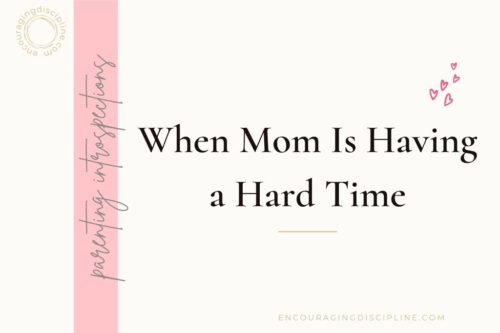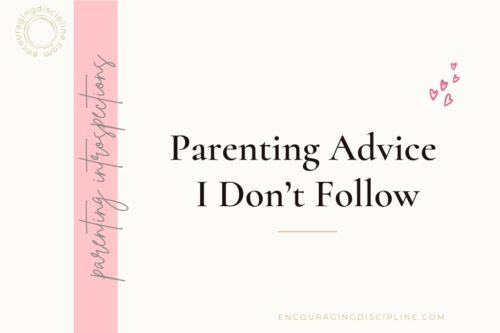The Inevitable Halloween Meltdown
Do you look at other parents and imagine they’ve got it all figured out? Or do you imagine that kids of parent coaches never have a meltdown? And that these “experts” always react in the most zen way?
Think again. I’m going to share a story with you which will prove the opposite. You will see that my kids have meltdowns too. And being a Peaceful Parent Coach does not exempt me from dealing with challenges.
I hope this will help normalize your experiences as a parent. And that you will begin to view meltdowns and what our children need from us a little differently.
Related: How to Deal With Tantrums
My kids can have a meltdown too
This story happened on Halloween.
Halloween was surprisingly fun this year. The weather was gorgeous, several neighbors had set up interactive displays or games, and we were all out for a long time (maybe too long). Overall the kids had a blast.
After trick-or-treating, I made the (uninspired) decision to drive my daughter to see two houses that were putting on light shows and other things. By the time we drove back, it was really late and past her bedtime.
When we were almost home, my daughter insisted that we drive back to a house in our neighborhood where she had forgotten to take pictures of some cute pumpkins. I told her we weren’t going anywhere but home because it was very late.
She started crying and kicking the seat in front of her.
Now, maybe I should back up a little, and before you think me to be a cruel mom, telling me that I could have driven a few streets away to avoid this meltdown, I should tell you that initially I actually did what my daughter requested. But I misunderstood and took her to the wrong house, you see. However, I immediately regretted my decision to drive around because we were just wasting precious sleep time trying to avoid the inevitable. By “the inevitable” I mean, of course, the meltdown.
So I calmly told my daughter that driving to the house which wasn’t the house was a mistake and that we were going straight to bed. And I prepared myself for mayhem. My daughter did not disappoint. She delivered as expected.
I did my best to listen, offer hugs, and use a calm voice while getting myself and both kids ready for bed. Well, mostly my son, since my daughter was still uncooperative at this point.
Things weren’t progressing well though, because my daughter was trying to resist crying and releasing her emotions. Instead, she was trying to hit me, which I stopped her from doing. And when she couldn’t hit me, she started hitting her own thighs, repeating “I’m so angry at myself!”
This triggered me more than anything. I can deal with my kids directing their aggression at me, but not at themselves!
I glared at my daughter and told her that she is never allowed to hurt herself to avoid feeling her feelings! Because I was triggered, I had urgency and a dose of uncontained strong emotion in my tone. I didn’t raise my voice, but it sounded harsh and lacked warmth. Still not good.
I know, it doesn’t make any sense to react like this to a child who is in need of help. But I’m not going to view this as a parenting failure. Stopping there and ruminating over a moment of weakness on my part wouldn’t be helpful. What’s more important is what followed.
My reaction actually surprised my daughter and she looked at me a little stunned. I apologized.
Then I went on to explain that it’s healthy for her to cry, to feel her emotions, and to talk about it. But it’s not healthy to aggress herself just to prevent herself from feeling her upset feelings.
After some more crying and hyperventilating, and more empathizing and holding, she calmed down enough so we could talk about why she needed to cry.
Related: How to Respond When Children Cry
We tried to figure out why she was having a meltdown
I explained to my daughter that I didn’t believe she was crying because she hadn’t gotten a picture of the pumpkins, however cute they were. Instead, I encouraged her to think about why her wise body needed to cry at that moment. I offered supportive questions to help her describe what the day had been like and what it meant now that it was coming to an end.
Together, we came up with four possible reasons why she needed to cry:
- She was tired and her body was stressed and really wanted to rest.
- It had been a really wonderful day, “The best Halloween ever!”, as she had put it earlier in the day. And now that we were going to sleep, it meant that everything was ending and she wasn’t ready to let go of the good times she had had.
- She had had really intense emotions during the day: very excited, very happy, scared by some of the displays, just really high emotions overall, unlike what her body was used to on a regular day. Now her body was trying to release those intense emotions by washing them out with tears.
- She had eaten a lot of candy which caused her the “rush and crush” that she had experienced before.
I made it clear to my daughter that no one reason was responsible for the way she was feeling. It could be all four or only some of them. Humans are very complex beings and it’s very normal to feel what she was feeling.
When we were in bed, we told the story again of all the experiences of the day.
Then my daughter was able to fall asleep quickly and peacefully.
Understanding what was happening to her helped my daughter to process her emotions and experiences in a healthy and positive way.
We made a plan to recover from the meltdown
In the morning, she wanted to talk again about the previous night. Because she was calm and rested, I asked her if she knew what her body needed now to rebalance. She said: sleep and drink water. “Those are very good ideas!”, I said. Then I added eating healthy meals, giving our body proteins, fiber, and healthy fats. And spending time outside in the sun.
So we made a plan to stick to those four nourishing and healing intentions for the next few days:
- Drink plenty of water
- Eat healthy meals with lots of fruits and protein
- Spend time outside – the beautiful weather means we can go biking or walk after school
- Sleep – we decided to go to bed earlier than usual to catch up on our sleep.
It’s going to be my responsibility to help my kids stick to this rebalancing plan for the next few days. I hope that by doing this, they will learn to understand themselves, take care of their bodies and emotional health, stay in touch with themselves, and know how to recenter after an experience that throws them off-balance.
So, you see, yes, I did lose my patience with my daughter, but I didn’t leave it at that. I repaired and I refocused my attention on what was important. And that was for my daughter to learn to love herself and protect herself fiercely.
I hope this story will help you reframe your child’s meltdowns and your role in them.
Because, as you can see, being a peaceful parent does not mean our parenting will be smooth sailing or that our kids will never have strong emotions again. It means we are truly our children’s protectors and guides.
We offer love, compassion, understanding, and wisdom. And so we show them how to do it for themselves one day.







